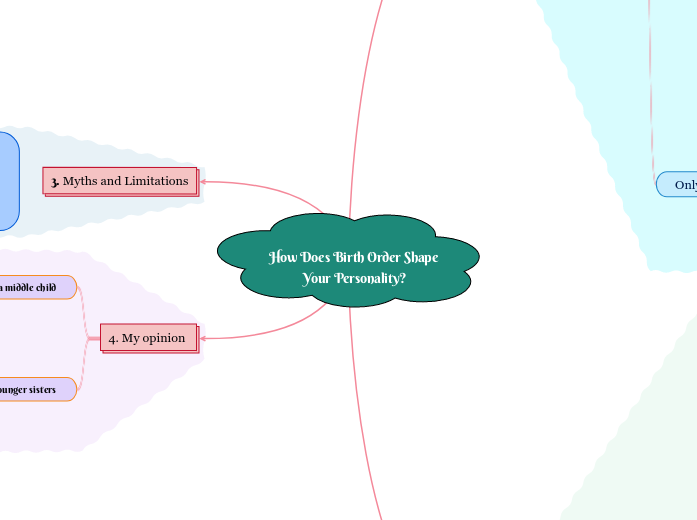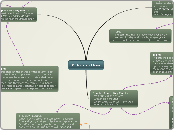How Does Birth Order Shape Your Personality?
Conflict is present everywhere in the world around us. We experience conflict on a daily basis, and it can be minor or major.
Conflict in a story is a struggle between opposing forces. Characters must act to confront those forces and there is where conflict is born. If there is nothing to overcome, there is no story. Conflict in a story creates and drives the plot forward.
4. My opinion
This situation results from a protagonist working against what has been foretold for that person. While this conflict was more prevalent in stories where gods could control fate, such as in ancient Greek dramas, there are still examples of this type of conflict in more contemporary literature.
elder and younger sisters
Since in real life we can't say that such examples of man versus supernatural, there are some superstitions that can influence a person's life.
Give examples of these superstitions.
speaking of my older sister and my younger sister, there are also many things that coincide except for two aspects:
the younger sister has self-doubt due to constant comparisons with her older sisters
the elder sister is very confident
I am a middle child
Give examples of man versus fate conflict in a literary work.
almost all the facts from the article coincide with the story of my life except for two details: I am not a peacemaker and not a people pleaser
3. Myths and Limitations
A more contemporary type of conflict, this situation results from humans involved in a struggle with man-made machines. This is an external conflict.
While birth order theory holds a popular position in culture, much of the available evidence suggests that it likely only has a minimal impact on developmental outcomes. In other words, birth order is only one of many factors that affect how we grow and learn.
Give examples of man versus machine conflict in a literary work.
2. Birth Order Influences Relationships
In this type of conflict, a character is tormented by natural forces such as storms or animals. This is also an external conflict.
Expectations
Lastborns may place the burden of responsibility on their partner's shoulders while they take a more laissez-faire approach
Middle children are more prone to seek balance in relationships and want to make sure that everyone is treated fairly and contributing equally
Firstborns often have high expectations of themselves and others, sometimes leading to criticism when people fall short.
Relationship Roles
Lastborns may be more carefree and less rigid.
Middle children are more likely to be flexible and take a more easygoing approach.
Firstborns, for example, may be more likely to take on a caregiver role. This can be nurturing and supportive, but it can sometimes make partners feel like they are being "parented."
Communication
Give examples of man versus nature conflict in the real world.
Lastborns, on the other hand, may rely more on their sense of humor and charm to guide their social interactions.
Middle children may be less confrontational and more likely to look for solutions that will accommodate everyone.
Firstborns and only children are often seen as more direct, which others can sometimes interpret as bossy or controlling.
Dr. Lev suggests that the effects of birth order can differ depending on gender.
"For instance, in a family with two female siblings, the younger one often appears more confident and empowered, while the older one is more achievement-focused and insecure," she explains.
Give examples of man versus nature conflict in a literary work.
She also suggests that there is often a notable rivalry between same-sex siblings versus that of mixed-gender siblings. Again, this effect can vary depending on gender.
1. Birth Order Theory
A situation in which two characters have opposing desires or interests. The typical scenario is a conflict between the protagonist and antagonist. This is an external conflict.
Only child
If you're an only child, you may feel more comfortable being alone and enjoy spending time in solitude pursuing you own creative ideas
Mature
Diligent
Thoughtful
Perfectionistic
High-achieving
Imaginative
Self-reliant
Sensitive
Last Child
Because parents are sometimes less strict and disciplined with last-borns, these kids may have fewer self-regulation skills.
Outgoing
Fun-loving
Charming
Free-spirited
Immature
Manipulative
Self-centered
Dependent
Risk-taking
Middle Child
Give examples of man versus man conflict in the real world.
some studies have shown that middle kids are less likely to feel close to their mothers3 and are more likely to have problems with delinquency
Independent
Peacemakers
People pleasers
Outgoing
Adaptable
Attention-seeking
Jealous
Competitive
Insecure
First-Born Child
Give examples of man versus man conflict in a literary work.
parents have higher expectations for you and look to you to set an example for your younger siblings.
Leaders
High-achieving (or sometimes even over-achieving)
Structured and organized
Responsible
Mature









